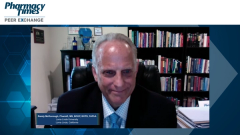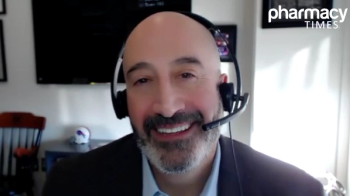
Historical Treatment Options in Heart Failure
Key opinion leader in pharmacy, Randy McDonough, PharmD, MS, BCGP, BCPS, FAPhA, provides insight into the history of conventional treatment approaches in heart failure.
Episodes in this series

Richard Mullvain, RPh, BCCP, BCPS, CCCC: Before we jump into the future, let’s make sure as pharmacists we understand where we’ve been. I want to back up the truck a little. I’d like to provide a brief history on the conventional treatments that we’ve had for heart failure over the last many years. Obviously, we have ACE inhibitors, beta-blockers, angiotensin receptor blockers [ARBs], and diuretics. How do these fit in with the current guideline-directed medical therapy? Can we comment a little on mortality and morbidity benefits? I’m going to bring Randy in here. Walk us through the history of the conventional treatments we’ve had for heart failure so far.
Randy McDonough, PharmD, MS, BCGP, BCPS, FAPhA: I think I’m the oldest 1 here, so I can probably give you a good history. When I was getting my bachelor’s degree, what we understood about heart failure was that we have an inadequate pump. The therapy we had for that was the loop diuretics to help with the symptomatology of heart failure and then digoxin to help the heart beat better. That’s what I was taught. We also talked about preload and afterload and how to reduce both. We had old-time medications that have shown to have benefit as well, which includes hydralazine and isosorbide, or the nitrates.
What was cool for me is after I graduated, in the mid-1990s, when we talked about guideline-directed medical therapy, all of a sudden ACE inhibitors started to rise as far as these vasodilators that had a beneficial effect on heart failure. It didn’t just reduce hospitalizations; it increased survival. I still remember the study consensus trial that came out and that changed the whole thought process of how we treat heart failure. Then we started having a better understanding of the pathophysiology of heart failure with the neurohormonal pathways and why the ACE inhibitors work because the renin-angiotensin-aldosterone system and all the deleterious effects it has on the heart.
Then we started asking, “What about sympathetic nervous system as well? What kind of impact does that have on the heart?” Once we had the ACE inhibitors and the different trials that demonstrated its effectiveness, we also looked at the ARBs, or the angiotensin receptor blockers. There was a lot of good information. A lot of good studies have indicated that those are very beneficial to the patient as well.
What was interesting is with the early trials, everybody was already treated with digoxin and loop diuretics. We didn’t know much more about the beta-blockers. But looking at the neurohormonal pathways, we thought, “If we could block that sympathetic nervous system better, can that improve the effects of the heart and improve survival?” Sure enough, we saw with certain beta-blockers that it did have a very positive effect. I remember when that came out, because in the 1980s, it was contraindicated to use a beta-blocker. All of a sudden, here we are in the 1990s, and we’re like, “No, beta-blockers should be a primary treatment to help that patient increase their survival.” It was exciting to see that.
Then we started seeing the aldosterone antagonists, such as spironolactone and eplerenone, coming on board, indicating that they also improve the morbidity and mortality of a patient, so they need to be standard therapy as well. It was very exciting to be a part of that. It also tells me how you always have to be informed as a pharmacist and watching because it constantly evolves. Alex talked about the loop and thiazide diuretics. They haven’t shown the survival, but they do help with the symptomatology of heart failure, so they very much have a place in therapy and need to continue to be used and monitored appropriately.
Richard Mullvain, RPh, BCCP, BCPS, CCCC: That was great, Randy. You said a lot of great things, but 1 thing you mentioned was about certain beta-blockers. As we know, there are only certain beta-blockers that we use for heart failure. I remember the old MERIT-HF trial. I graduated in the 1990s too. Randy, do you want to comment on why certain beta-blockers work and others are not recommended for heart failure?
Randy McDonough, PharmD, MS, BCGP, BCPS, FAPhA: Sure. The beta-blockers that have the evidence include the long-acting or extended-release metoprolol. It includes bisoprolol and carvedilol. Those have the evidence. Those have the backing with it. As far as the specifics of those particular beta-blockers, I’m going to have my colleagues express why those might be better. But those have the evidence to support them. What’s interesting, though, is you do have the short-acting metoprolol as well. You do see people sometimes being treated with those. Not that it doesn’t have the evidence to support it, but as a pharmacist, you need to be questioning. We have questioned within the community pharmacy setting why they had someone on the short-acting vs the long-acting.
Transcript edited for clarity.
Newsletter
Stay informed on drug updates, treatment guidelines, and pharmacy practice trends—subscribe to Pharmacy Times for weekly clinical insights.






























